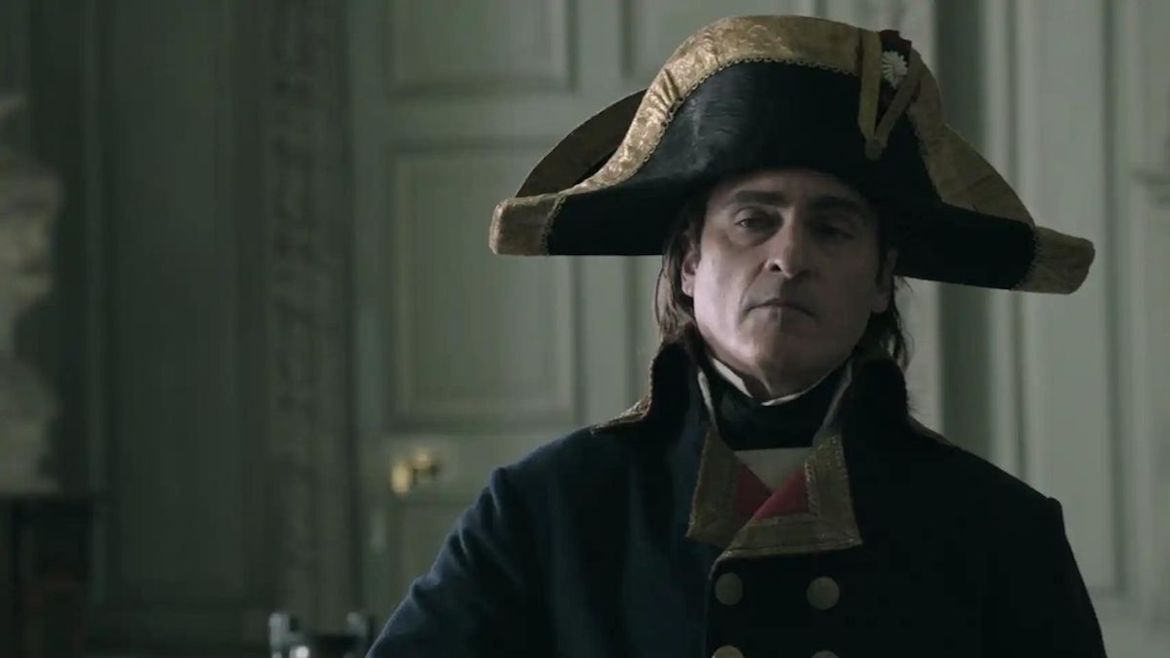The people who walked in darkness, with a leader like Napoleon, remained in darkness.
 A scene of Napoleon with Joaquin Phoenix.
A scene of Napoleon with Joaquin Phoenix.
One of the greatest mysteries in the history of cinema has to do with Ridley Scott.
How is it possible that someone who debuts with the marvel that is The Duelists (1977), who with his second film proves himself in the way he did with that hybrid of science fiction and horror that is Alien, the eighth passenger (1979) and who with his next work achieves a masterpiece of incalculable value such as Blade Runner (1982), from that moment onwards becomes so irregular?
That would be the word I would use to define his last film to date: irregular.
I wasn't disappointed, because I didn't expect anything, or rather little. The technical section is always the most outstanding aspect of his films; the problem is that the photography, the staging, the camera movements, the editing, according to Ridley Scott, should not be at the service of the story, but at the service of the image.
[destacate]The word I would use to define the last film of Ridley Scott : irregular [/destacate] The image for the sake of the image, so that he once again achieves a film that shows a very attractive surface, but it is only a façade, inside it is completely hollow.
The screenplay takes bland bites out of episodes of the character's life, without historical rigour and without going into anything in depth.
It is as if we were visiting an art gallery where a succession of canvases illustrate moments in Napoleon's life, with the difference that here he is embodied in a superlative Joaquín Phoenix on whom all the life and energy of the film rests.
At the end of the screening I confess that I wondered what the purpose of the film really was; I think that someone like Napoleon has a lot more to offer, without resorting to epics.
I am going to point out five aspects that are present in the film and I consider to be of interest, although some of them pass over in passing:
"Do nothing out of selfish ambition or vain conceit. Rather, in humility value others above yourselves, 4 not looking to your own interests but each of you to the interests of the others". (Philippians 2:3-4)
Napoleon's ambition seems inexhaustible, as if he were a Nebuchadnezzar II of his time. Both shared a hunger for territorial expansion, military skills and the ability to rule with an iron fist.
"Do not be deceived: God cannot be mocked. A man reaps what he sows . (Galatians 6:7-8)
The film ends with an account of the victims for whose decisions Napoleon himself was ultimately responsible.
[destacate]At the end of the screening I confess that I wondered what the purpose of the film really was; I think that someone like Napoleon has a lot more to offer, without resorting to epics [/destacate] "Trust in the Lord with all your heart, and not in your own understanding. In all your ways submit to to him, and he will make your paths straight". (Proverbs 3:5-6)
Confidence in his abilities was one of Napoleon's distinguishing characteristics. He rejected any other kind of help, whether human or divine.
"You shall have no other gods before me. You shall not make for yourself an image in the form of anything in heaven above or on the earth beneath or in the waters below". (Exodus 20:3-4)
Not so much for him, but for those who worshipped him as if he were a truly superior being. And he, to know himself, accepted it and used it for his own benefit.
"Do not store up for yourselves treasures on earth, where moths and vermin destroy, and where thieves break in and steal. But store up for yourselves treasures in heaven, where moths and vermin do not destroy, and where thieves do not break in and steal" (Matthew 6:19-21).
If instead of seeking his own kingdom, he had sought God's kingdom, which is eternal, his achievements would not have been temporary.
There is no doubt that the people who walked in darkness, with a leader like Napoleon, remained in darkness.
Samuel Arjona, violinist, composer, singer and writer.

Las opiniones vertidas por nuestros colaboradores se realizan a nivel personal, pudiendo coincidir o no con la postura de la dirección de Protestante Digital.
Si quieres comentar o